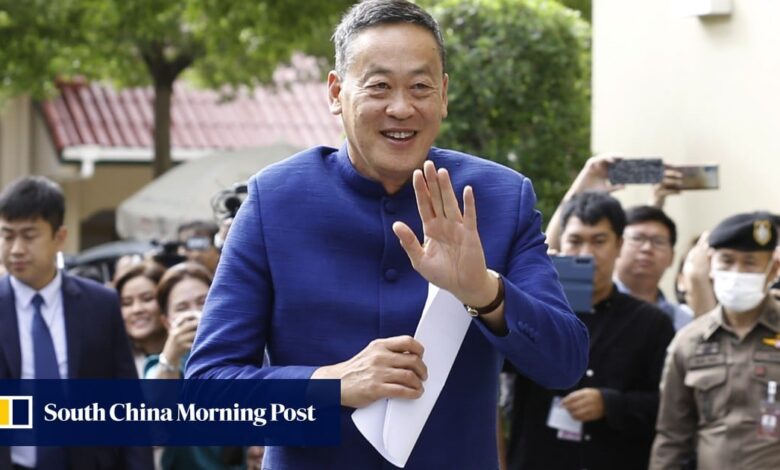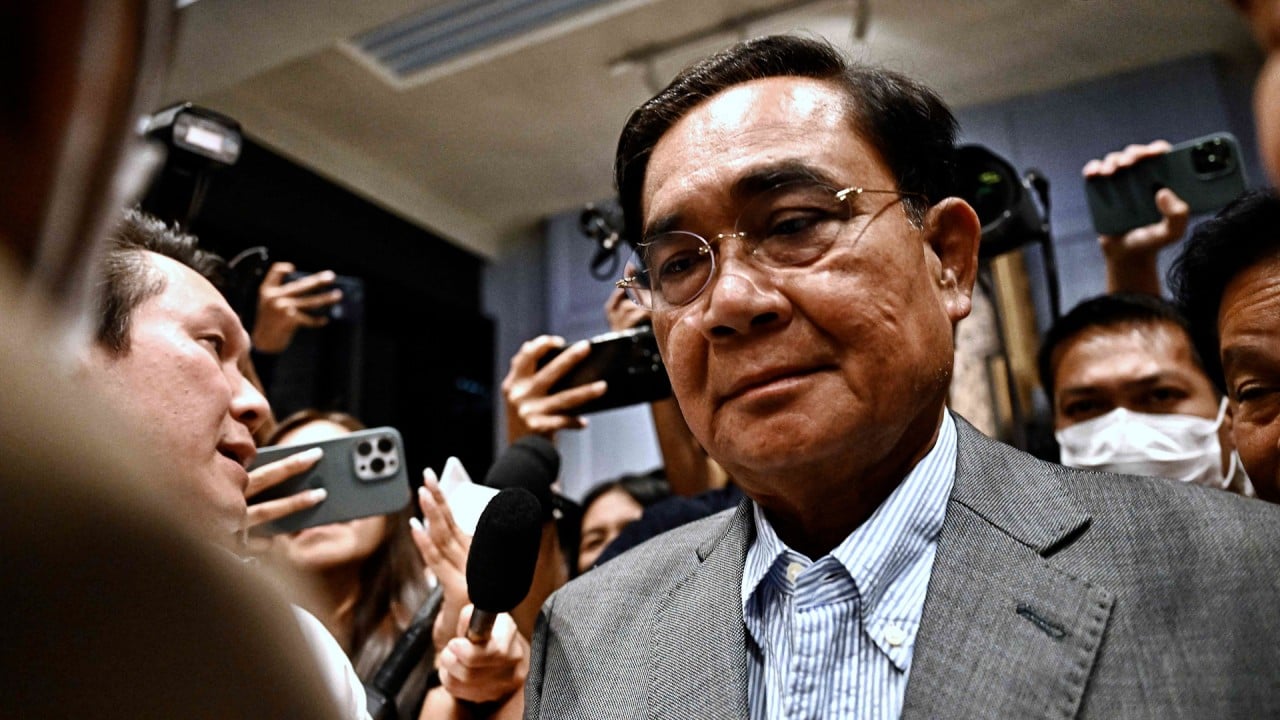US-Thailand relations: Washington spots a rare chance for a reset under new PM Srettha Thavisin

[ad_1]
Even so, Washington sees a rare chance to significantly advance the relationship across a range of areas, from investment and trade to education exchanges and energy, according to a US official familiar with the matter. That could also extend to military equipment, including to upgrade Thailand’s existing aircraft, said the official.
China and Thailand to expand military ties amid ‘security challenges’
China and Thailand to expand military ties amid ‘security challenges’
“The 2014 coup was deeply damaging to Thailand’s international heft and it forced the military government to seek support from China, and since then, Thai foreign policy has been beholden to China,” said Thitinan Pongsudhirak, a professor at Chulalongkorn University in Bangkok. “So, with the new government there will be a qualitative change.”
Those ties were strained by a cycle of coups and street protests over the years as military-backed governments cracked down on pro-democracy groups. In 2014, the US condemned the coup led by former Prime Minister Prayuth Chan-ocha, curtailing financial assistance required by its appropriations law.
The need to improve the economy pushed the generals closer to China, which has emerged as Thailand’s top source of investment, according to the Thai Board of Investments. Chinese companies pledged some US$1.7 billion in the first half of this year, mostly in electronics parts manufacturing.
“We have had good relationships with the US for 160 years. With China, we have many Chinese descendants, including me,” Srettha said on Monday after disclosing over the weekend that he’ll visit China next month. “China is also key to stimulating our economy going forward. We need to maintain our neutral stance and not take sides.”
As a result, not everyone is convinced that the new government will be quick to warm to the US.
I don’t see Thailand moving into the direction of the Philippines, where they have openly embraced the relationship [with the US]
“I don’t see Thailand moving into the direction of the Philippines, where they have openly embraced the relationship more closely and essentially gone in the opposite direction,” said Joshua Kurlantzick, a senior fellow for Southeast Asia at the Council on Foreign Relations.
The US needs a stronger economic policy to match its security ambitions for the region, Kurlantzick said.
Regardless, the Pentagon will explore cooperation in new domains such as space and cyberspace and in its mutual defence education programmes and combined military training exercises, spokesman Lieutenant Colonel Martin Meiners said in an email.
“We’ll continue to seek opportunities to engage with our Thai allies on a range of security issues, to include the modernisation of the Thai military,” he said, without commenting on any potential deal to provide equipment to bolster its fleet of ageing military jets, following reports that the US declined to sell Thailand F-35 stealth fighters.
Thailand awaits US$1 billion Chinese tourism boost as it reaches out to India
Thailand awaits US$1 billion Chinese tourism boost as it reaches out to India
Given the opportunity, Srettha will have to determine how far he wants to go in rebalancing ties.
Srettha’s foreign policy team is “very eager to get Thailand back on its feet,” said Thitinan, of Chulalongkorn University. “They have to be careful in balancing the US-China competition and in doing so, I think, more nuanced.”
[ad_2]
Source link


